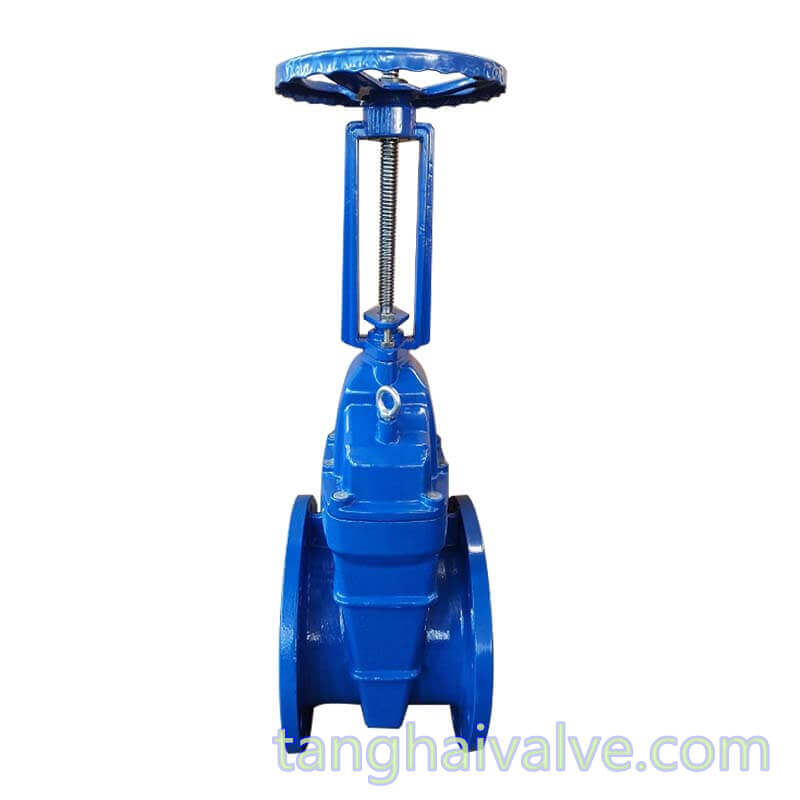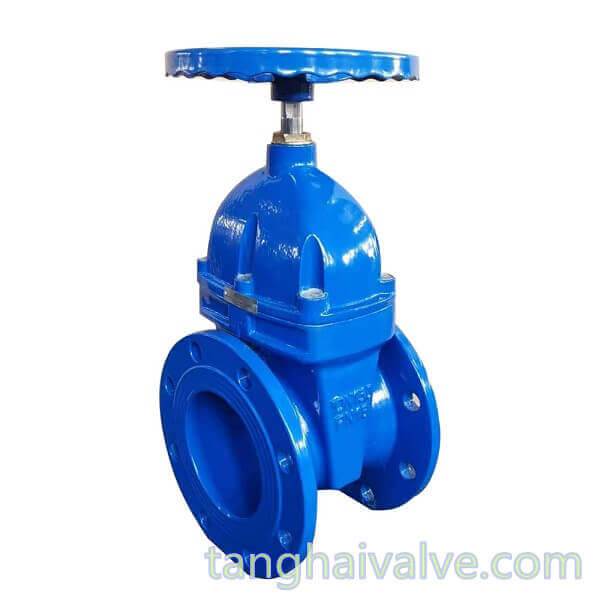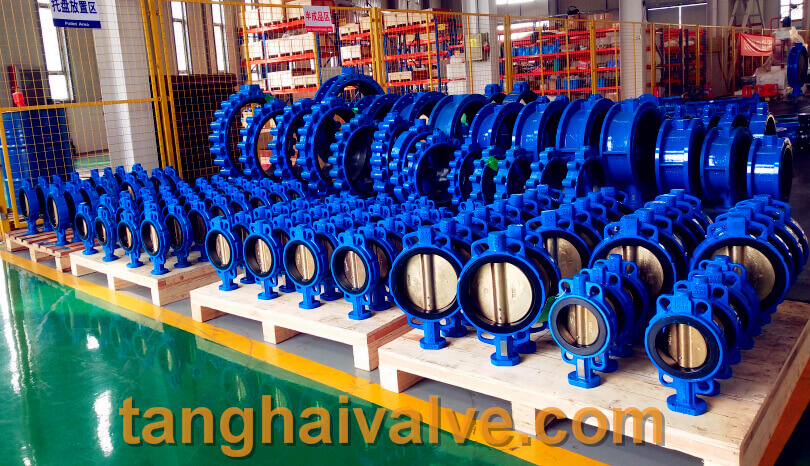Difference between NRS gate valve and RS gate valve
NRS gate valve, means Non-rising Stem gate valve; RS gate valve, means Rising stem gate valve. you can see the difference in appearance on below photos.
Gate valve is one of the most common valves in piping systems. Because it can only be fully open and fully open, gate valves are commonly used when the fluid medium in the pipeline needs to be cut off. The operation of the gate valve does not need to be so frequent. Gate valves are widely used because they can be divided into many types. Different gate valve types have certain differences in use. This article mainly analyzes the difference between the RS gate valve and the NRS gate valve.

rising stem gate valve-RS-BB OS&Y (3)
Gate valves are classified according to the type of stem, which can be divided into two types: RS gate valve and NRS gate valve. The two are different in transmission mode, valve body structure, installation space, application range, etc.
1. The difference in the transmission mode. The transmission mode of the RS gate valve is that the handwheel drives the nut to rotate in place, and the valve stem rises and falls linearly. Through the threaded drive of the valve stem and the steering wheel, the valve flap is raised and lowered to complete the switch; the NRS gate valve is manual The wheel drives the valve stem to rotate. The hand wheel and the valve stem are connected together and relatively immovable. There are threads in the gate, and the valve stem rotates at a fixed point to drive the gate to rise and fall.
Second, the difference in structure, the structure of the rising stem gate valve is that the stem nut is on the bonnet or bracket. When the gate is opened and closed, the stem nut is rotated to realize the lifting of the stem. The structure of the NRS gate valve is that the stem nut is in the valve body and is in direct contact with the medium; when opening and closing the gate, it is realized by rotating the stem.

DIN-F4-BB-NRS-soft seated-wedge gate valve-DN100-PN16-copper holding ring-handwheel (3)
Third, the difference in installation space, the rising stem gate valve requires a larger installation space due to the stem; the height of the NRS gate valve is small, and it will not take up too much space during installation.
Fourth, the difference in application scope, the structure of the rising stem gate valve is beneficial to the lubrication of the stem, and the degree of opening and closing is obvious; the stem thread of the NRS stem gate valve is not only unable to be lubricated, but it is directly corroded by the medium and is easily damaged. Therefore, the RS gate valve is more The NRS stem gate valve has a wider range of applications.
The above is the difference between the RS gate valve and the NRS gate valve. Next, I will introduce you a little common sense, how to judge the RS gate valve and the NRS gate valve:
The stem of the RS gate valve drives the gate to move up and down together. The drive thread on the stem is outside the valve body. The opening and closing and position of the gate can be intuitively judged according to the movement direction and position of the stem; the drive thread of the NRS gate valve is located on the valve. Inside the body, during the opening and closing process, the valve stem only rotates, the gate moves up and down in the valve body, and the valve opens and closes until the steering wheel does not rotate.
TH Valve is a professional manufacturer of butterfly valve, gate valve, check valve, globe valve, knife gate valve, ball valve with API, JIS, DIN standard, used in Oil, Gas, Marine industry, Water supply and drainage, fire fighting, shipbuilding, water treatment and other systems, with Nominal Diameter of DN50 to DN1200, NBR/EPDM/VITON, Certificates & Approvals: DNV-GL, Lloyds, DNV, BV, API, ABS, CCS. Standards: EN 593, API609, API6D
Related news/knowledge:
Non-rising stem(NRS) and rising stem(RS) gate valve;
structures and differences of Non-rising stem(NRS) and rising stem(RS) gate valve;
How many types of gate valves?
The working principle of butterfly valve (picture)



 © Copyright 2020 Tianjin Tanghaidongyang Valve Co., Ltd. All Rights Reserved.
© Copyright 2020 Tianjin Tanghaidongyang Valve Co., Ltd. All Rights Reserved. tanghaivalve.com
tanghaivalve.com